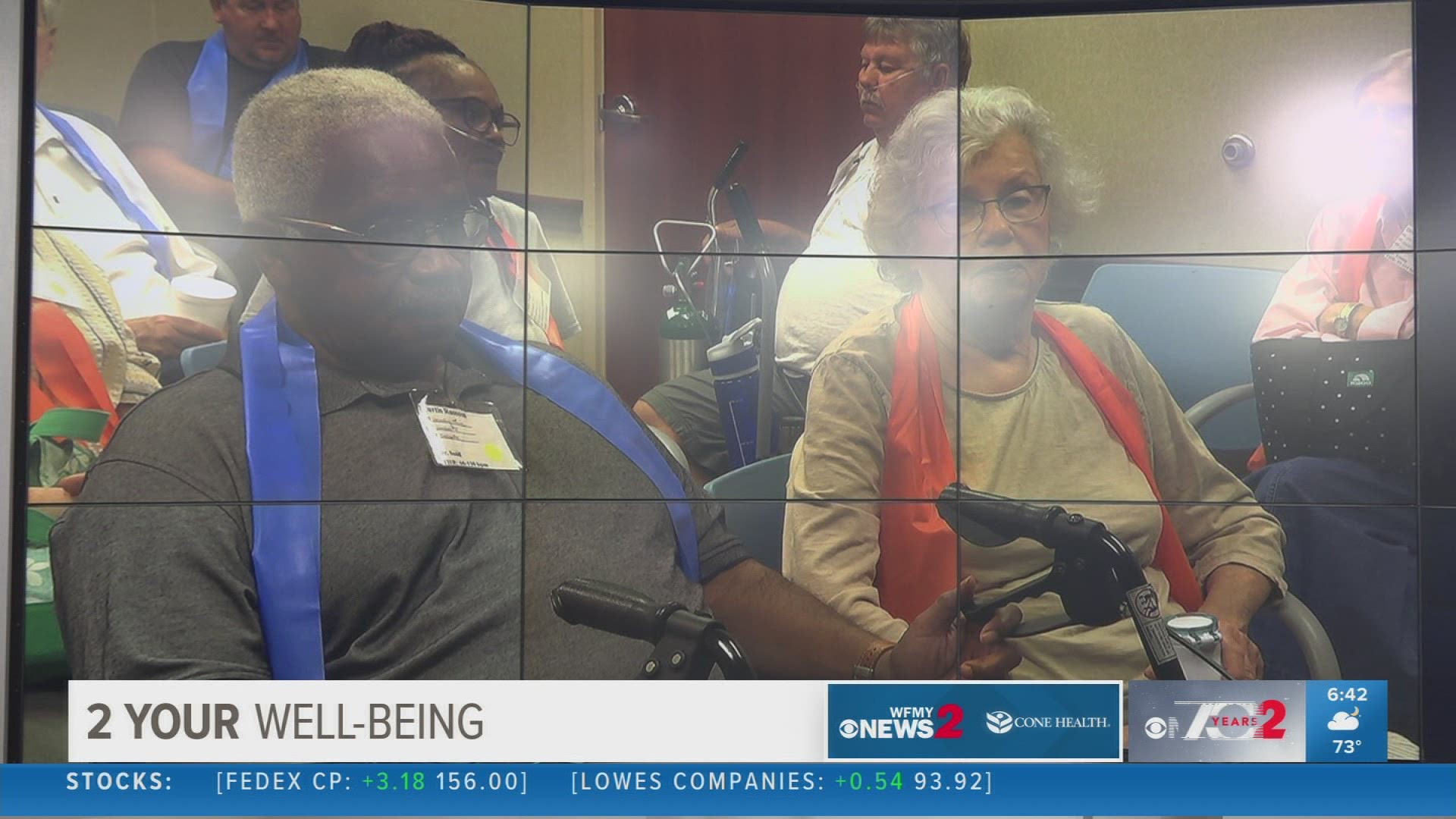GREENSBORO, N.C. — Over the next minute, you will breathe at least 12 times. For most people it is automatic, but there are a growing number of people who fight to breathe.
In this week's 2 Your Well-being segment with Cone Health, WFMY News 2's Tracey McCain takes a closer look at pulmonary fibrosis, the symptoms, support and solutions developed right here in the Triad.
Fred Haley considers himself very lucky to have caught his pulmonary fibrosis early.
"I had smoked for 35 years," said Haley, 67. "I became overweight after I retired, 35 pounds overweight."
Haley has idiopathic pulmonary fibrosis or IPF. It's one of the most common and deadliest forms of pulmonary fibrosis.
Dr. Murali Ramaswamy is the Director of the Pulmonary Fibrosis Program at LeBauer Healthcare and Cone Health.
"Pulmonary fibrosis is a scar that develops in the lung tissue, but by itself. The scar gets worse and worse with time and that makes the person cough or have shortness of breath, ultimately dependent on oxygen, making it difficult to talk and ultimately, they die from the disease," explained Dr. Ramaswamy.
Similar to advanced lung cancer, patients usually die within the first two years of diagnosis. But Haley is blowing away the odds.
Haley is on Esbriet or Pirfenidone which can slow down scarring and damage in the lungs.
Ofev or Nintedanib is the other drug on the market that is treating patients with the disease.
"The fact that he's alive, the fact that he's not on oxygen, the fact he's fully functional is a testament to the scientists that developed these drugs," said Dr. Ramaswamy.
Haley's IPF is also managed through in-office breathing tests that monitor oxygen levels.
Walking tests also tell doctors if patients need to carry oxygen tanks to help them breathe.
Dr. Ramaswamy says Haley is writing the book as to what doctors hope to see in patients.
"I talked about the pillars of pulmonary fibrosis and IPF and he's doing all of that including quitting smoking, losing weight, taking care of his health and becoming an activist for the disease," he said.
Part of that activism is the Pulmonary Fibrosis Foundation support group. It's one of two in the state which he co-founded right at Cone Health.
Pulmonary rehabilitation is a place where patients get support, exercise and offer encouragement.
"I may die of this disease, I may not die of this disease," said Haley, "But I was pretty certain about five years ago, and I was going to do everything I could to fight it," said Haley.
Part of that fight includes research to help others.
"He's on his third clinical trial right now, and on the third one he's on, he was the first to go worldwide on that trial, so he's not only making a difference for others, but also for himself," said Ramaswamy.
There is no cure and doctors don't know why IPF happens, but there's progress.
"Scientists are coming up with inhaler therapy, nebulizer therapy, IV therapy these are different forms of attacking the disease," said Dr. Ramaswamy.
And there's hope!
In all of our meetings, I end with, 'Remember, guys we fight! We fight,'" said Haley.
The research Dr. Ramaswamy is heading up is cutting edge. People like Fred Haley with IPF are not supposed to live past two to five years. He's now in year eight.
Dr. Ramaswamy says 20% of IPF runs in families and others are smokers but people who never smoked a day in their life are also at risk.
He says if you ever experience shortness of breath or pain, see a doctor and get it checked out.
Dr. Ramaswamy is running clinical trials through Pulmonix Research and is part of the Pulmonary Fibrosis Care Center Network. There are at least 60 centers across the country. North Carolina has two centers, but Cone Health is the only one for this region.
You can learn more about the PFC Network or the clinical trials by clicking on the appropriate links.

